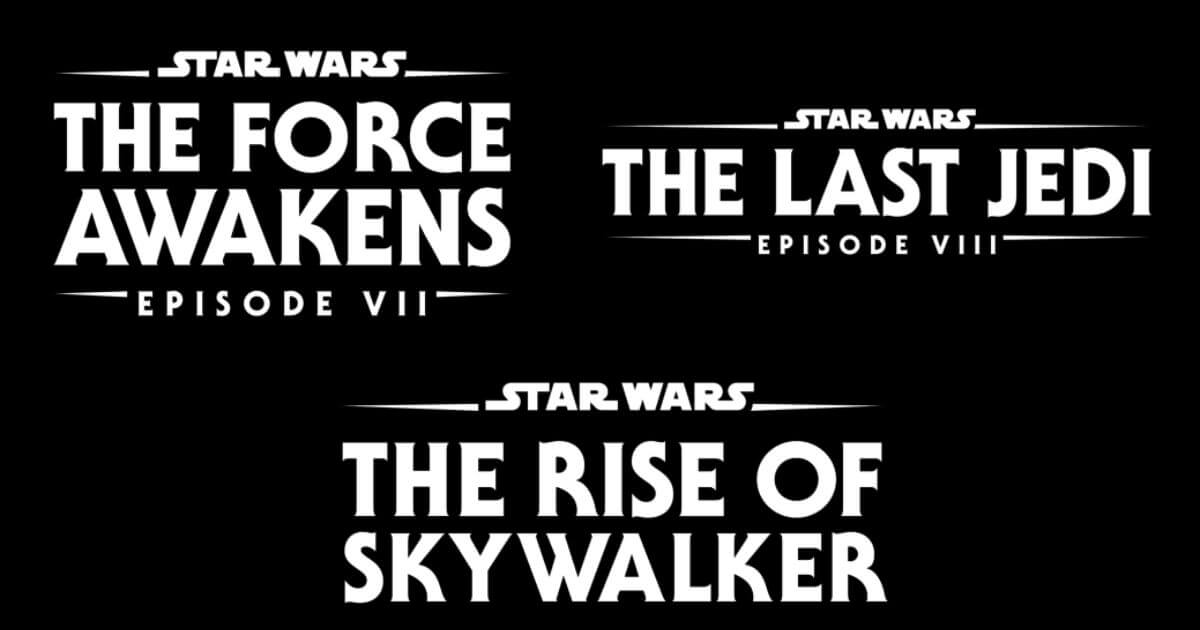Some prominent Star Wars series
Star Wars series is one of the best American multimedia franchises created by George Lucas. The franchise began with the eponymous 1977 film and quickly became a worldwide pop-culture phenomenon.
A comprehensive fictional universe has been created by the franchise’s expansion into a variety of movies and other media, including television shows, video games, novels, comic books, theme park attractions, and themed regions.
Its overall market value was predicted to reach US$70 billion in 2020, making it the fifth-highest media franchise in history in terms of lifetime revenue.
The history behind Star Wars Trilogy
The first three movies in the Star Wars series, Episode IV: A New Hope (1977), The Empire Strikes Back (1980), and Episode VI: Return of the Jedi (1983), comprised the original Star Wars trilogy.
In the future, Lucas came back to the franchise to helm the prequel trilogy, which included Episode I: The Phantom Menace (1999), Episode II: Attack of the Clones (2002), and Episode III: Revenge of the Sith (2003). (2005). In 2012, Lucas gave up control of the franchise when he sold his production firm to Disney.
Episode VII: The Force Awakens (2015), Episode VIII: The Last Jedi (2017), and Episode IX: The Rise of Skywalker is the result of this, sequel trilogy (2019).
Achievement of the Star Wars series franchise
The first two “Skywalker Saga” films, which comprise the entire nine-film Star Wars series, won Academy Award nominations. The theatrical live-action “anthology” movies Rogue One (2016) and Solo (2018) brought in nearly US$10 billion at the box office together, making this the second-highest-grossing film franchise of all time.
The various impact of the Star Wars series on the Hollywood industry
The Star Wars series franchise is known for its greatest impact on the Hollywood industry as well as numerous artists.
The Impact on 20th Century Fox
20th Century Fox experienced great success with the first Star Wars saga, which is credited with giving the business new life. After the movie’s debut, the studio’s stock price doubled to a record high in just three weeks.
20th Century Fox had previously achieved annual earnings of $37 million, but in 1977 it topped that record with a profit of $79 million. The franchise aided Fox’s transformation from a production firm on the verge of bankruptcy to a successful media behemoth.
Impact on Hollywood Aesthetics and Narratives
Star Wars series profoundly altered the aesthetics and narratives of Hollywood movies, shifting the emphasis of Hollywood productions away from meaningful, in-depth storylines built on dramatic conflict, themes, and irony and toward colossal, special-effects-heavy blockbusters. It also fundamentally altered the Hollywood film industry.
Prior to Star Wars, film special effects had not significantly improved since the 1950s. Modern special effects had a flourish in the late 1970s because of the commercial success of Star Wars.
Star Wars and Jaws established the summer blockbuster movie tradition in the entertainment business when multiple screens are opened simultaneously and successful franchises are significant. It established the template for the successful movie trilogy and demonstrated that a movie’s merchandising rights may bring in more money than the movie itself.
The Role of Critics in the Star Wars Series
“Like The Birth of a Nation and Citizen Kane, Star Wars was a technical watershed that impacted many of the movies that came after,” noted film critic Roger Ebert in his book The Great Movies. It marked the start of a new era in special effects and action movies.
The movie was one of the first to combine different genres to create a brand-new, innovative subgenre for future films. Finally, along with Steven Spielberg’s Jaws, it caused a turn in the direction of fast-paced, high-budget blockbusters aimed at younger audiences, away from the personal filmmaking of the 1970s.
Star Wars and Jaws have been blamed by some critics as examples of how Hollywood has been “ruined” by turning away from “sophisticated” movies like The Godfather, Taxi Driver, and Annie Hall in favor of spectacle and kid-friendly fantasy, as well as by moving away from stand-alone, one-and-done movies and toward blockbuster franchises with numerous sequels and prequels.
Peter Biskind, one of these critics, lamented, “After everything was said and done, Lucas and Spielberg took the educated 1970s audience, which had grown accustomed to watching European and New Hollywood films, back to the simplicity of the earlier Golden Age of cinema. Through the looking glass, they marched in reverse.”
In contrast, Tom Shone said that Spielberg and Lucas “didn’t betray cinema at all: they plugged it back into the grid, returning the medium to its roots as a carnival sideshow, a magic act, one giant spectacular effect,” which was “a kind of rebirth” with the release of Star Wars and Jaws.
The wider impact of the Star Wars series on Hollywood’s filmmakers
One of the greatest film trilogies ever made is generally agreed to be the original Star Wars trilogy. Many filmmakers, including Damon Lindelof, Dean Devlin, Roland Emmerich, John Lasseter, David Fincher, Joss Whedon, John Singleton, Kevin Smith, and later Star Wars directors J. J. Abrams and Gareth Edwards, have cited the Star Wars series as an influence.
In particular, Ridley Scott’s Blade Runner (1982) and Alien (1979), James Cameron’s Aliens (1986), The Terminator (1984), George Miller’s Mad Max 2 (1981), and Peter Jackson’s The Lord of the Rings trilogy were influenced by Lucas’s idea of a “used universe” (2001–2003). Inception, a box office success in 2010, was the result of Christopher Nolan citing Star Wars as an inspiration.

